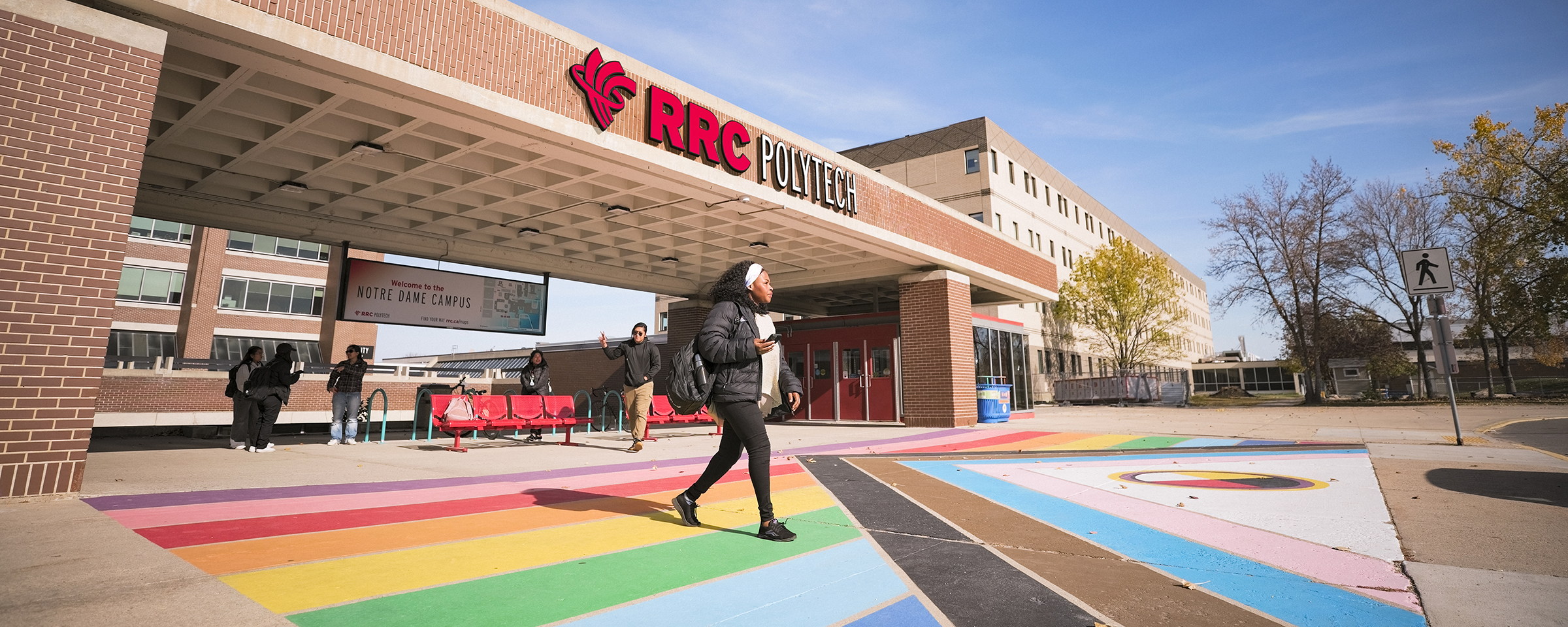RRC Grads Raising Money for Dog-Saving Mission in Nepal

Animal Health Technology grads Mary Robinson (left) and Tannis Rentz, with furry friends Aspen, Willow and Capone.
Red River College grad Tannis Rentz (Animal Health Technology, 2002) has been providing aid to people’s pets for more than 10 years now — ever since she began volunteering at the Transcona Veterinary Hospital as a teen.
But in April 2013, Rentz and fellow AHT grad Mary Robinson (2011) will travel a little further afield to help the tens of thousands of sick or malnourished dogs crowding the streets of Kathmandu, Nepal.
Rentz and Robinson are headed to Nepal’s KAT Centre, a not-for-profit treatment centre for sick and injured street dogs. As Rentz explains, there are currently more than 20,000 dogs living on the streets of Kathmandu — many of them infected with rabies and other communicable diseases that pose a threat to their human counterparts.
“And of course they’re constantly reproducing, because none of them are spayed or neutered,” says Rentz, who over the last 10 years has worked her way from a clinical position at the Winnipeg Animal Emergency Clinic to an administrative role with the Petsecure arm of the Western Financial Insurance Company.
“Initially, the government there thought it would be a good idea to terminate these dogs by throwing poisoned meat into the streets. But then they’d dispose of the poisoned bodies by throwing them into their water supply, which just made things even worse.”
While in Kathmandu, Rentz and Robinson will assist KAT Centre staff in treating captured dogs for their existing medical conditions (malnourishment, skin diseases, lesions, etc.), then rehabilitating them to the point they can be safely spayed or neutered.
They will also be taking part in public awareness campaigns aimed at teaching residents how to properly care for dogs as pets, and how to avoid being bitten by those dogs that have yet to be treated.
To offset the costs of their three-week mission, Rentz and Robinson have launched a crowd-funding site on Indiegogo.com, and have also begun selling homemade, organic dog treats named after canines that have been successfully rehabilitated at the KAT Centre.
“I miss working with animals but at the same time I don’t want to jump back into veterinary practice,” says Rentz, who’s back at RRC taking distance courses in business and management. “I look at this as a perfect way to help animals and use my medical training.”
Both grads had praise for the College’s AHT program, noting it prepared them for a wide range of positions in the animal health care field.
“You’re able to branch out into some may things with this program,” says Robinson, who splits her time between an adjuster.underwriter position at Petsecure and clinical work at the Pembina Veterinary Hospital. “You can work in a lab, you can work in the pet health industry, you can work in a clinic, you can work for Canadian Food Inspection Agency. There are even technicians out there … who are performing heart surgery, because they’ve had such extensive training.”
Click here to learn more about Rentz and Robinson’s plans — or to make a donation — and here to learn more about RRC’s Animal Health Technology program.
